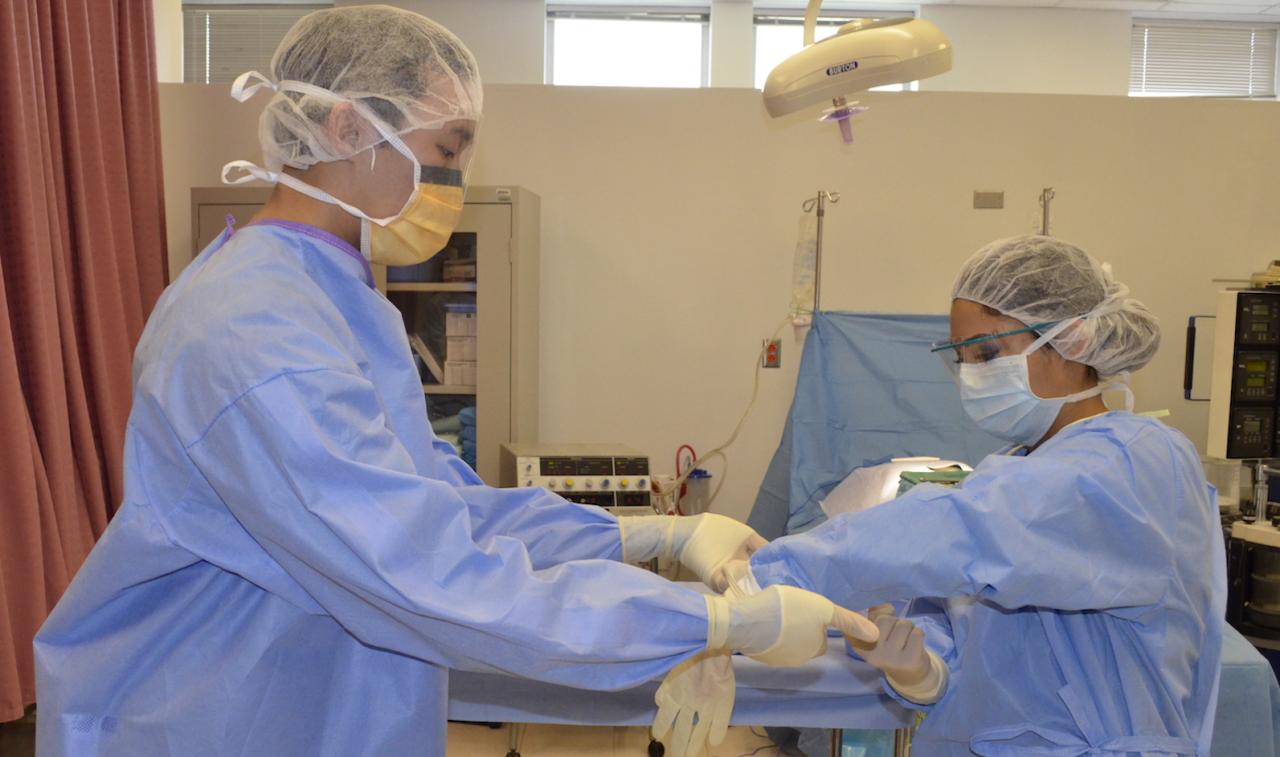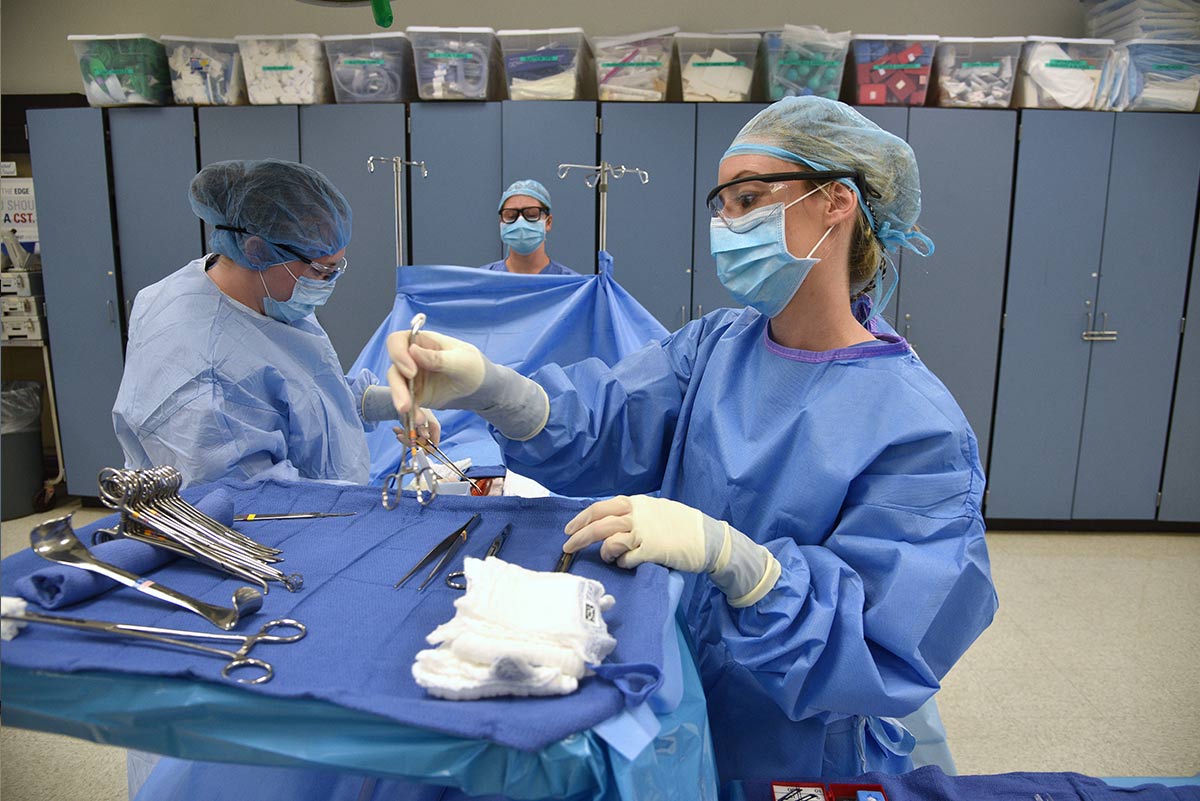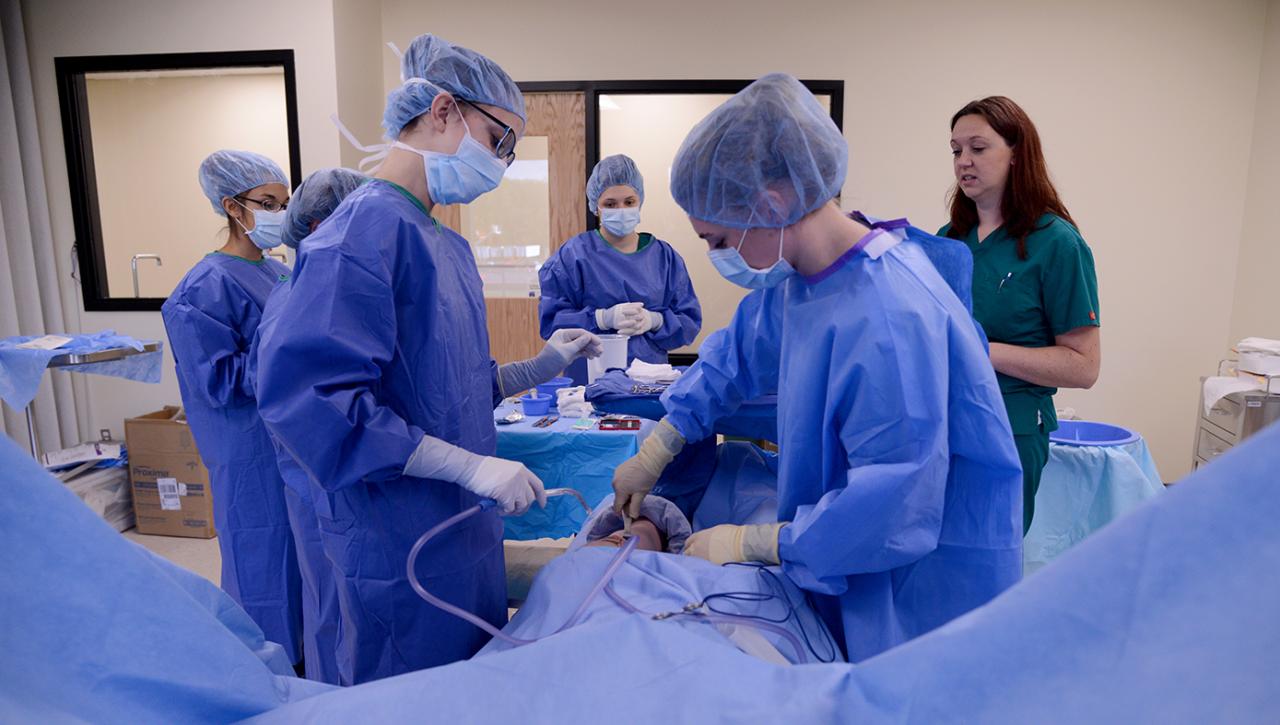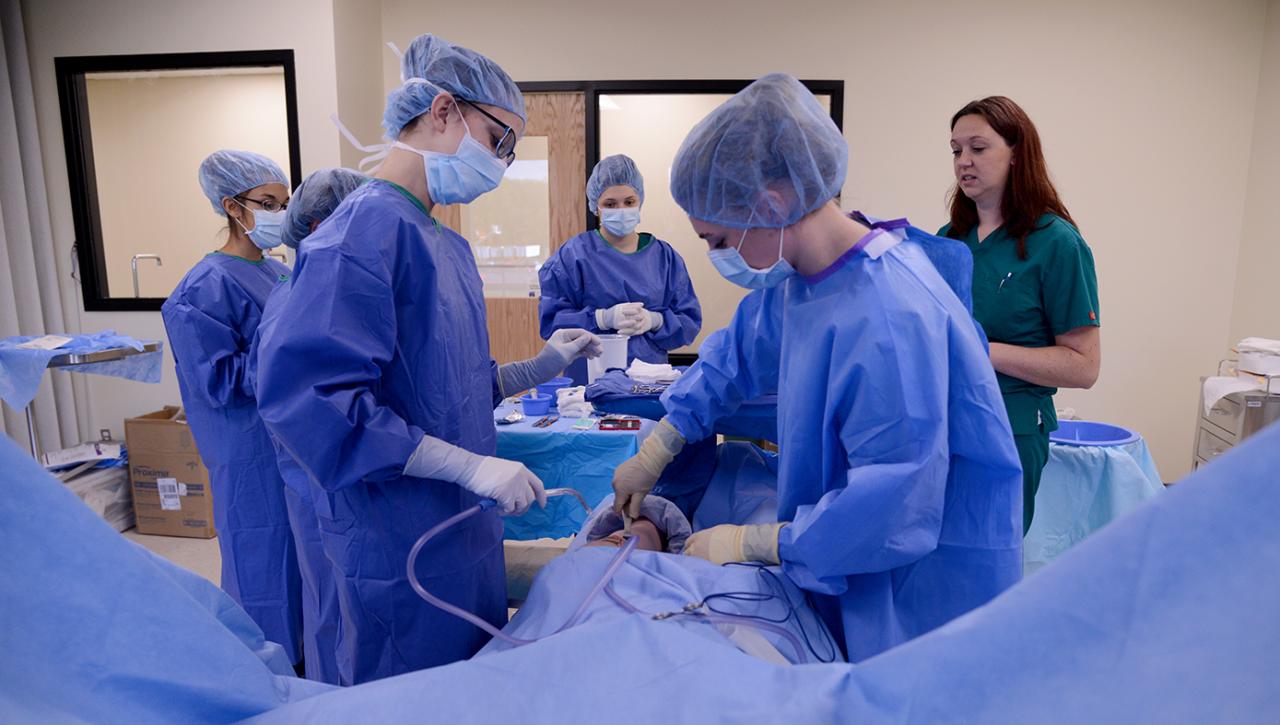Surgical tech program admission requirements and prerequisites can seem daunting, but understanding them is key to launching your career. This guide breaks down everything you need to know, from essential coursework and skills to background checks and financial aid options. We’ll explore the application process, highlight important prerequisites, and offer tips to make your application stand out. Getting into your dream program is within reach with the right preparation.
This comprehensive overview covers the typical curriculum, specializations within surgical technology, and comparisons between associate’s and bachelor’s degree programs. We’ll also delve into the specific requirements, such as GPA expectations, standardized test scores (if required), and the significance of letters of recommendation. Understanding the necessary skills, including manual dexterity, problem-solving abilities, and effective communication, is crucial. We’ll also address background checks, health requirements, and financial aid opportunities to help you navigate the entire process successfully.
Surgical Technology Program: A Comprehensive Guide

Becoming a surgical technologist is a rewarding career path for those with a passion for medicine and a knack for precision. This guide provides a detailed overview of surgical technology programs, covering admission requirements, prerequisites, and career prospects. We’ll break down the essential elements you need to know to successfully navigate the application process and launch your career.
Program Overview
Surgical technology programs train students to assist surgeons during operations. The curriculum blends classroom learning with extensive hands-on experience in simulated and real surgical settings. Graduates are prepared to handle a wide range of responsibilities, from preparing the operating room to assisting with surgical procedures.
Surgical technology programs offer various specializations, allowing students to focus their studies on a specific area of interest. Common specializations include cardiovascular surgery, neurosurgery, orthopedics, and general surgery. The choice of specialization often depends on individual interests and career goals.
So you’re thinking about becoming a surgical tech? Awesome! First, you’ll need to check out the admission requirements and prerequisites for surgical tech programs, which vary. To find programs in your area, start by searching for “surgical tech programs near me” using a search engine or checking a site like surgical tech programs near me. Once you’ve located some options, carefully review their specific admission criteria; things like GPA, prerequisite courses, and any required certifications can differ significantly.
Associate’s and bachelor’s degree programs both lead to careers as surgical technologists, but the bachelor’s degree often provides a broader education and potentially more career advancement opportunities. Associate’s degree programs typically focus more directly on surgical techniques, while bachelor’s programs may incorporate additional coursework in management, healthcare administration, or research.
Program lengths and costs vary significantly depending on the institution and degree level. The following table provides a sample comparison, remember that these are estimates and you should verify with specific institutions:
| Institution | Program Type | Program Length (Years) | Estimated Cost (USD) |
|---|---|---|---|
| Example Community College | Associate’s Degree | 2 | $15,000 – $25,000 |
| Example University | Bachelor’s Degree | 4 | $40,000 – $80,000 |
| Example Private College | Associate’s Degree | 2 | $30,000 – $50,000 |
| Example Online Program | Associate’s Degree | 2-3 | $20,000 – $40,000 |
Admission Requirements

The application process typically involves submitting a completed application form, official transcripts, letters of recommendation, and sometimes standardized test scores (like the SAT or ACT, depending on the institution). Some programs might require an interview as well.
Common prerequisites include a high school diploma or GED. Specific course requirements may vary but often include biology, chemistry, and possibly anatomy and physiology. A strong GPA is crucial for admission, as it demonstrates academic preparedness. While standardized test scores might be considered, their importance varies between institutions. Strong letters of recommendation from teachers, counselors, or previous employers highlight your character and suitability for the program.
Prerequisites and Skills
Successful surgical technologists possess a unique blend of academic knowledge and practical skills. Essential prerequisite courses often include biology, anatomy, physiology, and sometimes medical terminology. Beyond academics, strong manual dexterity, problem-solving abilities, and excellent communication skills are paramount.
- Biology
- Anatomy
- Physiology
- Medical Terminology
Teamwork is essential in the operating room environment. Surgical technologists must work collaboratively with surgeons, nurses, and other healthcare professionals. Relevant extracurricular activities or volunteer experiences, such as volunteering at a hospital or participating in a science club, can significantly strengthen your application.
Background Checks and Health Requirements
Surgical technology programs typically require background checks to ensure the safety and security of patients and the operating room environment. Meeting specific health requirements, including vaccinations and physical examinations, is also mandatory. This rigorous process helps identify any potential health concerns that could compromise the ability to perform the duties of a surgical technologist.
Common health disqualifications may include infectious diseases, impaired physical abilities that limit dexterity or stamina, or conditions that could pose a risk to patients or the sterile surgical environment. The process of obtaining necessary health clearances usually involves completing forms, undergoing physical examinations, and providing documentation of vaccinations.
Financial Aid and Funding Options
Financing your surgical technology education might involve a combination of financial aid options, including federal student loans, grants, scholarships, and institutional aid. Applying for financial aid often involves completing the Free Application for Federal Student Aid (FAFSA) and contacting the financial aid office of your chosen institution.
- Federal Student Loans
- Grants
- Scholarships
- Institutional Aid
- Professional Organizations
Program Accreditation and Licensing
Accreditation ensures that surgical technology programs meet established quality standards. Accredited programs often lead to better career prospects and may be required for licensure or certification. Several organizations accredit surgical technology programs, each with its own set of standards. The Commission on Accreditation of Allied Health Education Programs (CAAHEP) is a widely recognized accrediting body.
Obtaining surgical technology certification or licensure varies by state. It typically involves passing a national certification exam administered by organizations such as the National Board of Surgical Technology and Surgical Assisting (NBSTSA). The specific steps involved in obtaining licensure may differ depending on the state’s regulations.
So you’re looking at surgical tech program admission requirements and prerequisites? It’s a competitive field, so make sure you meet all the criteria. While you’re researching that, you might need a break – check out this hockey news: Canucks place star F Pettersson on retroactive IR, recall G Silovs. After your quick hockey update, remember to double-check those surgical tech program admission requirements and prerequisites again!
Career Outlook and Job Market, Surgical tech program admission requirements and prerequisites

The job outlook for surgical technologists is generally positive, driven by the increasing demand for surgical procedures and the aging population. Surgical technologists work in a variety of settings, including hospitals, outpatient surgical centers, and physician’s offices. Their responsibilities include preparing the operating room, assisting surgeons during procedures, and maintaining a sterile environment.
The salary range for surgical technologists varies depending on experience, location, and employer. Career advancement opportunities exist, with potential for supervisory roles, specialized surgical areas, or management positions within healthcare facilities. The potential for career growth within the field is strong for those who are dedicated and committed to professional development.
So you’re looking at becoming a surgical tech? Awesome! First things first: check the admission requirements and prerequisites for surgical tech programs, which usually include a high school diploma and maybe some specific science courses. To find programs near you that also offer financial aid, check out this helpful resource: surgical tech programs near me with financial aid options.
Once you’ve found a program, make sure you meet all their specific requirements before applying – it’ll save you time and hassle down the line!
Last Point: Surgical Tech Program Admission Requirements And Prerequisites
Becoming a surgical technologist requires dedication and preparation. By understanding the admission requirements and prerequisites Artikeld here, you can confidently navigate the application process and increase your chances of acceptance. Remember to thoroughly research programs, plan ahead, and don’t hesitate to reach out to admissions offices with any questions. With careful planning and commitment, you can achieve your goal of becoming a skilled and valuable member of the surgical team.
FAQ
What if I don’t have all the prerequisites?
Many programs offer options for completing missing prerequisites before or during the program. Contact the program directly to discuss your options.
Are there age limits for applying?
Generally, there aren’t age limits, but you must meet all other requirements.
What kind of volunteer experience is helpful?
Experience in a healthcare setting, such as volunteering at a hospital or clinic, is beneficial. Even shadowing a surgical technologist can be valuable.
How important is my GPA?
A strong GPA demonstrates academic preparedness and is usually a key factor in the admissions process. Contact specific programs for GPA requirements.
